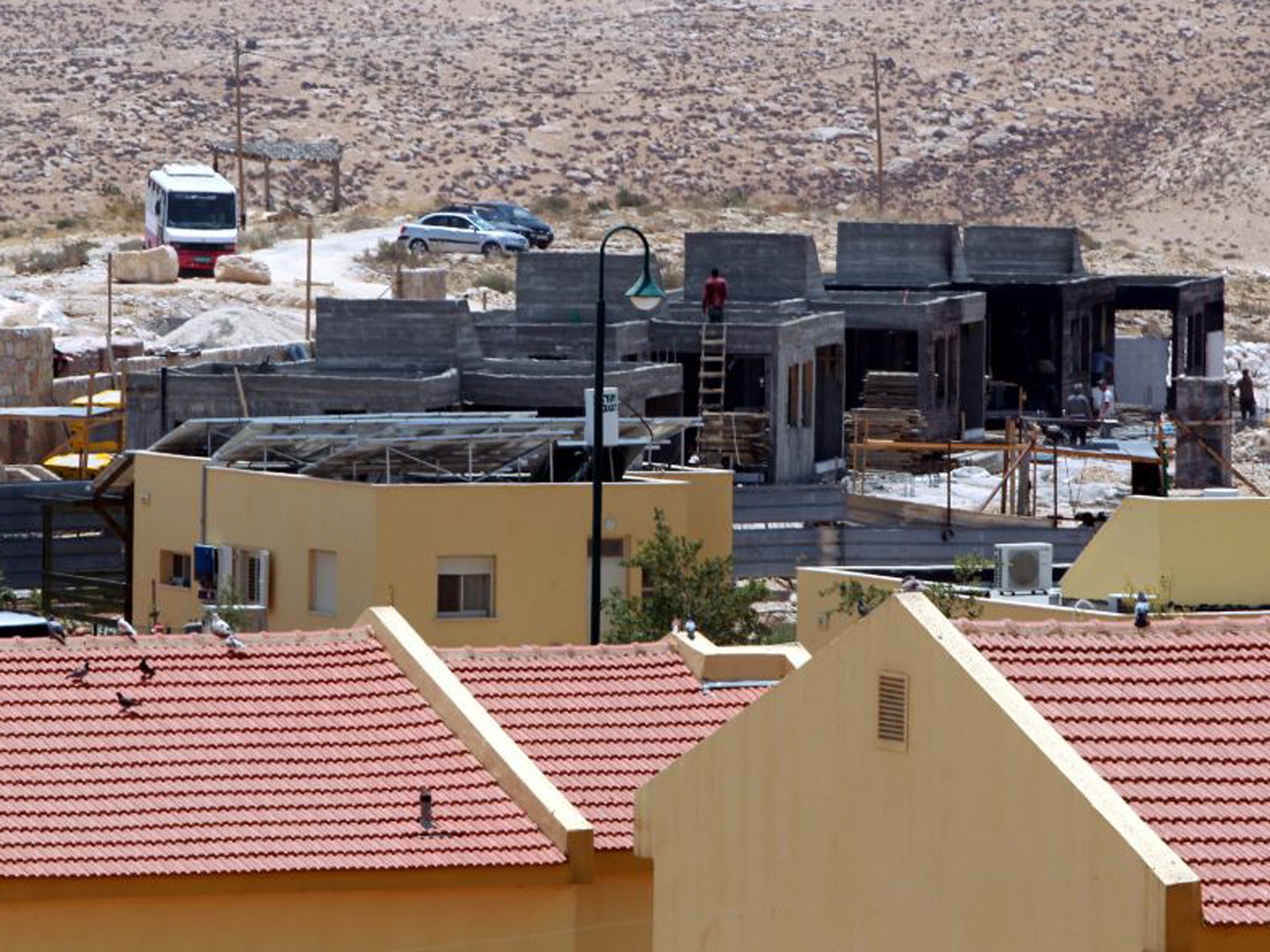Israeli anger as EU bans funds for West Bank settlements
One official described the measure as 'earthquake' for EU-Israeli relations

Your support helps us to tell the story
From reproductive rights to climate change to Big Tech, The Independent is on the ground when the story is developing. Whether it's investigating the financials of Elon Musk's pro-Trump PAC or producing our latest documentary, 'The A Word', which shines a light on the American women fighting for reproductive rights, we know how important it is to parse out the facts from the messaging.
At such a critical moment in US history, we need reporters on the ground. Your donation allows us to keep sending journalists to speak to both sides of the story.
The Independent is trusted by Americans across the entire political spectrum. And unlike many other quality news outlets, we choose not to lock Americans out of our reporting and analysis with paywalls. We believe quality journalism should be available to everyone, paid for by those who can afford it.
Your support makes all the difference.Israeli Prime Minister, Benjamin Netanyahu, has reacted angrily to a new European Union measure that will prohibit member states from agreeing certain measures with Israel without first receiving an assurance that West Bank settlements were excluded from the deal. One Israeli official described the new rule which will come into force on Friday, as an “earthquake” for EU-Israeli relations.
The notice prohibits all 28 EU states from providing any “grants, prizes and financial instruments funded by the EU” that benefits anyone in the settlements. The settlements – effectively villages and towns – are Jewish communities built on what is internationally regarded as Palestinian land. They are considered illegal under international law.
The new regulation requires any new agreement to carry a clause guaranteeing that the settlements are not part of the arrangement, and also apply to the annexed Golan Heights.
Mr Netanyahu, said: “As prime minister of Israel, I will not allow the hundreds of thousands of Israelis who live in the West Bank, Golan Heights or our united capital, Jerusalem, to be harmed. We will not accept any external diktats about our borders. This matter will settled only in direct negotiations between the parties.”
While many in Israel deny it, the settlements are regarded by EU officials as one of the biggest obstacles to any lasting peace deal between the Israelis and the Palestinians.
Dani Dayan, who until earlier this year was the chairman of the Yesha Council, which represents settlers, tweeted that, “the one-sided and discriminatory EU directive means Europe had effectively decided to abandon any involvement it had in the peace process.” He added that, “by aligning itself with the most extreme the EU can no longer be perceived as neutral or objective.”
A senior Israeli official, quoted in the liberal Haaretz newspaper, said: “We will have to decide what to do from this day forward. We are not ready to sign on this clause in our agreements with the European Union. We can say this to the Europeans, but the result could be a halt to all cooperation in economics, science, culture, sports and academia. This would cause severe damage to Israel.”
The most significant problem facing Israel is that by entering into agreements that specifically exclude the settlements, the state is effectively recognising that they are not part of the Jewish state, something that would cause consternation among the settler groups and on the Israeli right.
Silvan Shalom, the Israeli government minister for regional development, told Army Radio, that, “Once again, Europe has demonstrated just how detached it is, how it can’t really be a full partner to the negotiations. I remember, as foreign minister, the Europeans argued all the time against America’s leadership, asking why they weren’t full partners in the negotiations between us and the Palestinians. And I always told them, ‘First you need to adopt a more balanced policy’.”
Privately, a number of EU officials have said that their patience with Israel over the settlements is wearing thin and action needed to be taken. In addition to today’s announcement, another debate rages over whether or not to specifically label goods produced in the settlements for export to the EU.
Palestinian officials welcomed the move. In a statement, Hanan Ashrawi, a member of the PLO executive committee, said that the EU had backed its rhetoric with action. “The EU has moved from the level of statements, declarations and denunciations to effective policy decisions and concrete steps which constitute a qualitative shift that will have a positive impact on the chances of peace. The Israeli occupation must be held to account, and Israel must comply with international and humanitarian law and the requirements for justice and peace,” she said.
The EU move comes as John Kerry, the US Secretary of State, makes his sixth visit to the region since his appointment earlier this year. Part of his plan to convince the two sides to resume talks, includes assistance for the Palestinian economy. It is understood that he will not visit Israel during this latest visit.
Join our commenting forum
Join thought-provoking conversations, follow other Independent readers and see their replies
Comments